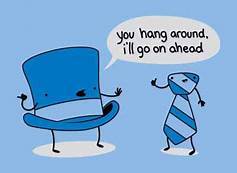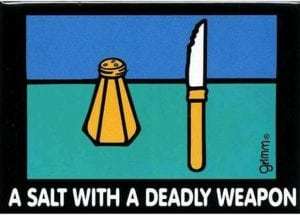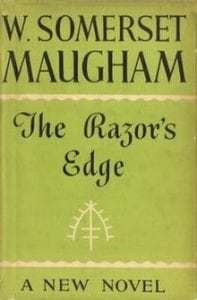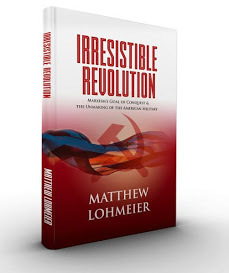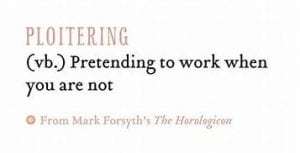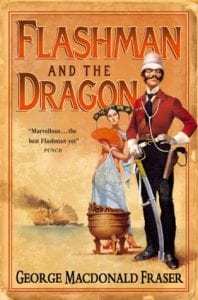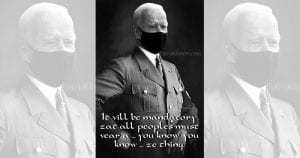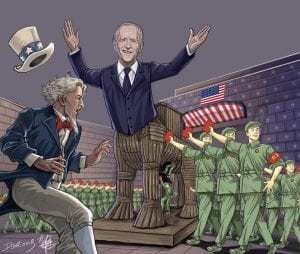Ronald E. Yates's Blog, page 51
June 27, 2021
Fascinating Facts For Word Lovers
As a someone whose primary tools are words, I am always interested in where these critical implements originated and how they continue to evolve.
The study of grammar, language, vocabulary–otherwise known as etymology–has always fascinated me. For those who enjoy writing and reading, what follows should be an entertaining romp through the worlds of philology, semantics, and dialectology.
Don’t let those terms throw you. We are not talking about theoretical mathematics or quantum physics. It is a look at where some of the words and phrases we use every day come from, some of the anomalies of words, language and usage, and how certain expressions evolved.
What follows is taken from a book entitled: 501 Things You Should Have Learned About Grammar. E njoy
Did you know that “R” is the most commonly used consonant in the English language? Were you aware that the term “English” came before the name England? Did you even realize that punctuation did not appear until the 15th century?
There is a treasure trove of fascinating facts in 501 Things You Should Have Learned About Grammar. It’s a book that linguists, lexicologists, book-lovers, grammarians, and those in book publishing should love. The book is put out by Metro Books, an imprint of Sterling Publishing, the Barnes & Noble publishing company. It features sections on the history of English grammar, parts of speech, linguists, English around the world, and grammar through the ages.
Here are 35 items from the book that should entertain, if not stimulate, you:
Shitfaced” meant “young-looking” in the Scottish dictionary. Yes, before 1826, shitfaced, according to Scottish dictionary meant small-faced. It referred to someone who had boyish or young looks.Queue” is the only word in the English language that doesn’t change in pronunciation if the last four letters are removed!One of the most interesting facts about words in the English language is that the female form of all words in English are longer than their corresponding male forms, except for in one case. The word “widow” is an exception to this. Its male form “widower” is longer.The oldest word in the Oxford English dictionary that is still in everyday use is “town.”Forty is the only number in which the letters that form the word appear in the order that they appear in the English alphabet.One is the only number in which the letters appear in the exact reverse order of their appearance in the English alphabet.“Four” is the only word whose numerical value is equal to the number of letters in it! Pangrams in English are sentences that contain all the letters in the English alphabet in a single sentence itself. Pangrams are used for testing typefaces, testing equipment, and for developing skills such as typing on keyboards, typewriting, handwriting, and calligraphy. Pangrams which are short and coherent are very difficult to come by, as English grammar has 26 different letters, and some of these, such as “q” and “x,” are not used very commonly. There is only one pangram in English which is short and universally accepted for keyboard testing. That pangram—“The quick brown fox jumps over the lazy dog.”About 20,000 books ranging from poems, devotional pieces, grammar books, dictionaries and mythical stories were printed in the 150 years that followed the year 1476, which was when the printing press arrived in England.There are no masculine nouns for certain professions like maid or seamstress in English.The longest word in the English language that is commonly used and does not contain any letter that is repeated is “copyrightable.”“Queueing” is the only word in the English language with five consecutive vowels appearing in it.China has more English speaking people than the United States of America!In the early 18th century, a large number of English words were being derived from names of people and places. Many have stuck on until today! The word “sandwich” owes its existence to the Earl of Sandwich, who, on a particular occasion, put a slice of meat in between two pieces of bread.Over 80 different spellings of Shakespeare’s name have been documented, and it is interesting to note that he has used various spellings in all his six known signatures.The printing press was first invented by Johannes Gutenberg around 1439 in Germany. Each letter’s mirror image was carved in relief on a small block. Words were formed when blocks, which were quickly movable, were arranged to form different words. The words were separated with the help of blank spaces, and this gave rise to a line of type, and some such lines of type gave rise to a page.With the help of some borrowed money, Gutenberg started the “Bible Revolution” in the year 1452, wherein 200 copies of the two-volume Gutenberg Bible were printed, out of which only a small number of them were printed on vellum.”By the year 1500, 13 million books were being circulated in Europe that was populated with 100 million people then.The Gutenberg Bibles were expensive and beautiful and were sold at the 1455 Frankfurt Book Fair, where each one was equal to the amount an average clerk got his salary in three years. About 50 of these Bibles survive today.The written English used in the official documents at the Court of Chancery, a court of equity in England and Wales, was what set a standard in grammar and vocabulary, and that’s where the term “Chancery English” originated.Paradise Lost is amongst the most significant epics ever written in English. And what makes it even more special is the fact that the author John Milton (who had lost his eyesight by then) would mentally compose the verses at night and in the morning he would dictate them to his aides.The discovery that English and Sanskrit had much in common, in spite of having little contact, stunned theorists. Surprised by the linguistic similarities between different languages, scholars began to hypothesize the existence of an ancient language called the “proto-Indo-European” language that would later give rise to the various branches of the Indo-European group.Language historians now believe that the speakers of the Proto-Indo-European languages spread to different parts of the world. Their language (spoken between 4,000-6,000 years ago) changed with their travels, leading the original Proto-language to die out, but leaving several distinct elements in the languages that evolved later.Words and sentences that are made by teaming up letters, numbers, or pictures are called Rebus. One example that we use in our day-to-day SMS lingo is “l8r,” which is short for “later.”
Pangrams in English are sentences that contain all the letters in the English alphabet in a single sentence itself. Pangrams are used for testing typefaces, testing equipment, and for developing skills such as typing on keyboards, typewriting, handwriting, and calligraphy. Pangrams which are short and coherent are very difficult to come by, as English grammar has 26 different letters, and some of these, such as “q” and “x,” are not used very commonly. There is only one pangram in English which is short and universally accepted for keyboard testing. That pangram—“The quick brown fox jumps over the lazy dog.”About 20,000 books ranging from poems, devotional pieces, grammar books, dictionaries and mythical stories were printed in the 150 years that followed the year 1476, which was when the printing press arrived in England.There are no masculine nouns for certain professions like maid or seamstress in English.The longest word in the English language that is commonly used and does not contain any letter that is repeated is “copyrightable.”“Queueing” is the only word in the English language with five consecutive vowels appearing in it.China has more English speaking people than the United States of America!In the early 18th century, a large number of English words were being derived from names of people and places. Many have stuck on until today! The word “sandwich” owes its existence to the Earl of Sandwich, who, on a particular occasion, put a slice of meat in between two pieces of bread.Over 80 different spellings of Shakespeare’s name have been documented, and it is interesting to note that he has used various spellings in all his six known signatures.The printing press was first invented by Johannes Gutenberg around 1439 in Germany. Each letter’s mirror image was carved in relief on a small block. Words were formed when blocks, which were quickly movable, were arranged to form different words. The words were separated with the help of blank spaces, and this gave rise to a line of type, and some such lines of type gave rise to a page.With the help of some borrowed money, Gutenberg started the “Bible Revolution” in the year 1452, wherein 200 copies of the two-volume Gutenberg Bible were printed, out of which only a small number of them were printed on vellum.”By the year 1500, 13 million books were being circulated in Europe that was populated with 100 million people then.The Gutenberg Bibles were expensive and beautiful and were sold at the 1455 Frankfurt Book Fair, where each one was equal to the amount an average clerk got his salary in three years. About 50 of these Bibles survive today.The written English used in the official documents at the Court of Chancery, a court of equity in England and Wales, was what set a standard in grammar and vocabulary, and that’s where the term “Chancery English” originated.Paradise Lost is amongst the most significant epics ever written in English. And what makes it even more special is the fact that the author John Milton (who had lost his eyesight by then) would mentally compose the verses at night and in the morning he would dictate them to his aides.The discovery that English and Sanskrit had much in common, in spite of having little contact, stunned theorists. Surprised by the linguistic similarities between different languages, scholars began to hypothesize the existence of an ancient language called the “proto-Indo-European” language that would later give rise to the various branches of the Indo-European group.Language historians now believe that the speakers of the Proto-Indo-European languages spread to different parts of the world. Their language (spoken between 4,000-6,000 years ago) changed with their travels, leading the original Proto-language to die out, but leaving several distinct elements in the languages that evolved later.Words and sentences that are made by teaming up letters, numbers, or pictures are called Rebus. One example that we use in our day-to-day SMS lingo is “l8r,” which is short for “later.”
 Spoonerisms pop up when letters and sounds get misplaced. Missed becomes hissed, flags become hags, so on and so forth.Malapropism: This term is used to denote the replacement of a correct word with the incorrect word because they sound similar.“Puns are often called the lowest form of humor because of their reliance on manipulating the sound of words for effect. These are homophones, where the pun is created by replacing one word with another similar sounding one. For example “Old kings never die, they’re just throne away.”An oxymoron is a figure of speech that combines two or more contradictory phrases that, in sum, express an essential relation. Can you hear the deafening silence at that? If so, act natural.Many grammarians believe that the process of onomatopoeia – words formed in the imitation of sounds – was the basis of the evolution of words in the human language. Human beings coined words out of exclamations they made or heard animal and birds make, or came across in their environment. This theory has been pooh-poohed by others who cite the fact that there are very few words in most human languages that are onomatopoeic.Book and movie titles are also retrospectively used as metaphors – that’s a “Catch 22 situation,” “This is such a 1984ish nightmare” or “it’s a Cinderella story.Incidentally, the English word “alphabet” is made by combining “alpha” and “beta,” the first two letters of the Greek alphabet.Elizabethan English refers to the English and the laws of English grammar that existed during the period of the reign of Queen Elizabeth I, who was the Queen of England and Ireland from 1558 to 1603.The Elizabethan Alphabet had 24 letters, unlike the present day alphabet, which has 26 letters. “u” and “v,” “I” and “j” were the same letter.After the writers of the Bible, Shakespeare is the second most quoted writer in the English language.By 1400, English had replaced French as the most widely spoken language in England. In 1500, the English dialect that became the most common among all of them was Westminster English. Speaking this dialect was considered to be a matter of great prestige.A lot of Norman French words found their way into the English language. In today’s times, it is believed that over 30% of all English words are of French origin. Words like “joy,” “joyous,” “attaché,” and several others found their way into English courtesy Norman French.”
Spoonerisms pop up when letters and sounds get misplaced. Missed becomes hissed, flags become hags, so on and so forth.Malapropism: This term is used to denote the replacement of a correct word with the incorrect word because they sound similar.“Puns are often called the lowest form of humor because of their reliance on manipulating the sound of words for effect. These are homophones, where the pun is created by replacing one word with another similar sounding one. For example “Old kings never die, they’re just throne away.”An oxymoron is a figure of speech that combines two or more contradictory phrases that, in sum, express an essential relation. Can you hear the deafening silence at that? If so, act natural.Many grammarians believe that the process of onomatopoeia – words formed in the imitation of sounds – was the basis of the evolution of words in the human language. Human beings coined words out of exclamations they made or heard animal and birds make, or came across in their environment. This theory has been pooh-poohed by others who cite the fact that there are very few words in most human languages that are onomatopoeic.Book and movie titles are also retrospectively used as metaphors – that’s a “Catch 22 situation,” “This is such a 1984ish nightmare” or “it’s a Cinderella story.Incidentally, the English word “alphabet” is made by combining “alpha” and “beta,” the first two letters of the Greek alphabet.Elizabethan English refers to the English and the laws of English grammar that existed during the period of the reign of Queen Elizabeth I, who was the Queen of England and Ireland from 1558 to 1603.The Elizabethan Alphabet had 24 letters, unlike the present day alphabet, which has 26 letters. “u” and “v,” “I” and “j” were the same letter.After the writers of the Bible, Shakespeare is the second most quoted writer in the English language.By 1400, English had replaced French as the most widely spoken language in England. In 1500, the English dialect that became the most common among all of them was Westminster English. Speaking this dialect was considered to be a matter of great prestige.A lot of Norman French words found their way into the English language. In today’s times, it is believed that over 30% of all English words are of French origin. Words like “joy,” “joyous,” “attaché,” and several others found their way into English courtesy Norman French.”
June 26, 2021
PUNS FOR THE EDUCATED
I hesitate to post this, but after reading through it a few times, I just can’t resist. We all know that the pun, or paronomasia, is often called the lowest form of humor. But as the American wit, Oscar Levant once said: “A pun is the lowest form of humor—when you don’t think of it first.”
Merriam-Webster Dictionary defines a pun this way: “The usually humorous use of a word in such a way as to suggest two or more of its meanings or the meaning of another word similar in sound.”
My introduction to the pun came from my fifth-grade teacher, Mrs. Gooch. One day in class she asked: “What is the difference between a conductor and a teacher? The conductor minds the train, and a teacher trains the mind.”
With that, herewith I give you:
PUNS FOR THE EDUCATED
The fattest knight at King Arthur’s round table was Sir Cumference. He acquired his size from too much pi.
I thought I saw an eye doctor on an Alaskan island, but it turned out to be an optical Aleutian.
She was only a whiskey maker, but he loved her still.
A rubber band pistol was confiscated from algebra class because it was a weapon of math disruption.
No matter how much you push the envelope, it’ll still be stationery.
A dog gave birth to puppies near the road and was cited for littering.
A grenade thrown into a kitchen in France would result in Linoleum Blownapart.
Two silk worms had a race. They ended up in a tie.
A hole has been found in the nudist camp wall. The police are looking into it.
Time flies like an arrow. Fruit flies like a banana.
Atheism is a non-prophet organization.
Two hats were hanging on a hat rack in the hallway. One hat said to the other: ‘You stay; I’ll go on ahead.’
I wondered why the baseball kept getting bigger. Then it hit me.
A sign on the lawn at a drug rehab center said: ‘Keep off the Grass.’
The midget fortune-teller who escaped from prison was a small medium at large.
The soldier who survived mustard gas and pepper spray is now a seasoned veteran.
A backward poet writes inverse.
In a democracy, it’s your vote that counts. In feudalism, it’s your count that votes.
When cannibals ate a missionary, they got a taste of religion.
If you jumped off the bridge in Paris, you’d be in Seine.
A vulture boards an airplane, carrying two dead raccoons. The stewardess looks at him and says, ‘I’m sorry, sir, only one carrion allowed per passenger.’
Two fish swim into a concrete wall. One turns to the other and says ‘Dam!’
Two Eskimos sitting in a kayak were chilly, so they lit a fire in the craft. Unsurprisingly it sank, proving once again that you can’t have your kayak and heat it too.
Two hydrogen atoms meet. One says, ‘I’ve lost my electron.
The other says ‘Are you sure?’
The first replies, ‘Yes, I’m positive.’
Did you hear about the Buddhist who refused Novocain during a root canal? His goal: transcend dental medication.
Then, there was the person who sent ten puns to friends, with the hope that at least one of the puns would make them laugh. No pun in ten did.
Congratulations if you made it this far. Now I dare you NOT to repeat one or two of these to your friends or family.
June 25, 2021
Journalism vs. Fiction: What’s the Difference?
Hundreds, if not thousands, of authors of fiction and non-fiction books, were once journalists. I am one of them. I spent 28 years as a national and foreign correspondent for the Chicago Tribune. I consider it the best training ground for my entry into writing Historical Fiction, which my Finding Billy Battles trilogy is.
However, the leap from journalism to fiction is not always an easy one. Sure, journalists have learned the fundamentals of communicating via the written word. They understand description, pacing, transition, even character development, but most appreciate that those critical elements of writing are a bit different when it comes to producing fiction.
It is a pleasure today to share this blog post from Marylee MacDonald, who is not only an excellent writer but a wonderful teacher and mentor for aspiring authors. Please enjoy this excellent essay on the differences between journalism and fiction.
—————————————————————————————————————————————————————
For Writers Ready to Publish, For Writers Who Need Readers
By Marylee MacDonald,
What’s the difference between journalism and fiction, and why should you care? Well, if you’re a writer in this day and age, you’re likely to do more than one kind of writing. Long-form journalism often pays. Fiction rarely does. Or, at least, it can take time for people to find you and buy your books. That’s why fiction writers today pen articles for online magazines.
 Marylee MacDonald
Marylee MacDonaldSome magazines expect you to write for free. Others pay for your guest post. The pay is good, but there’s another reason you might want to think about going back and forth between fiction and journalism. An insightful essay can boost a writer’s visibility. It can drive readers to your blog, and wouldn’t it be amazing if your essay went viral? In this post, I’m going to discuss the differences between the two kinds of writing. 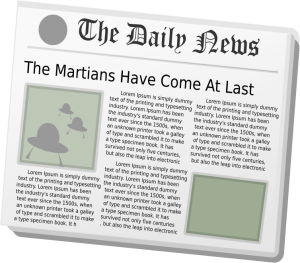
Journalism vs. Fiction
Let’s start with a quick compare-and-contrast of the two forms.
JournalismFiction and Creative NonfictionFocus on a single storyMultiple, interwoven storiesBegins with a “lede” summarizing the most important aspects of the storyThe ends of paragraphs or scenes are where you’ll find summary information.Objective-reportorial, with a voice that strives to remove the reporter’s “take on things” from that storySubjective-attempt to render the subjective quality of an experienceQuotes to corroborate facts or present two sides of an issueDialogue used to place the reader in the scene, not for presenting alternate viewpoints or argumentsVoice-journalistic, “how-to,” factualVoice-quirky, individualisticOutside the head-can only write about what the reporter observesInside the thoughts; unique to fiction and some forms of subjective journalism such as the so-called “gonzo journalism” of Hunter ThompsonFacts must be verifiable with more than one sourceWriters free to invent, even when writing about real people, such as T.C. Boyle’s novel about Frank Lloyd Wright, The Women. Rather than sticking with the facts, Boyle combined women, knowing he’d have a better story.Claim to fact-based “truth.”No claim to truth; unreliable narrators; exaggerationEditorial viewpoint—opinion pages based on reasoned argument; logicNo soapboxes allowedLinear, logical, and told in chronological time sequenceOkay to jump around in time, start and stop the story, or tell from different points-of-viewAll narration apart from quotes from multiple sourcesStories are told in scenes and summaries. In scenes, the story slows down, and readers can judge for themselves based on observing characters’ behavior.Sentences are written to newspaper’s style sheet and literacy level of readership; brevity; lack of subordinate clauses.Sentences must advance the plot, provide imagery, reveal character, and provide back-story. Complex sentences don’t have to target readers with a 10th-grade reading level.Journalism and Its Uses
Here’s when you might want to think journalistically:
When presenting newsworthy information (scientific breakthroughs or archaeological discoveries)When writing about historical events (perfect for writers of historical fiction)When pitching a guest blog to a national, online newspaperWhen you have multiple sources whose perspectives enlighten and informWhen you want to get paid for your writingWhen writing a newsy press releaseWhen providing copy for a local paper featuring your bookSites that welcome the kinds of articles fiction writers would be likely to write include Slate, Salon, The Atlantic, Vox, New Republic, The American Prospect, Mother Jones, The Daily Beast, FiveThirtyEight, Grantland, Medium, Aeon Magazine, and Huffington Post. If they like your idea, make sure they’ll link to your blog.
Why Should You Explore Opportunities in Journalism?
Let me state the obvious. Writing a novel takes quite a while. If you can begin developing a following by writing articles for online magazines, that will help you develop a platform and get your name out there. At the Pima Writers’ Conference two years ago, agent Michael Carr (of Veritas Literary in San Francisco) told me that he sits up and notices when a writer has published in Slate or Salon. (For more on agents and publishing, read this article.)
Many journalists write fiction. One of them is Ronald E. Yates, a former foreign correspondent for the Chicago Tribune and Dean Emeritus of the College of Media at the University of Illinois, Champaign-Urbana. Here’s a blog post about how he used his skills as a journalist when writing historical fiction. His Finding Billy Battles Trilogy is an example of how he fused the skills of journalism with those of a writer of fiction. 
While I’ve known many journalists who’ve made the leap into fiction, I know only a couple of fiction writers who’ve gone in the other direction. In case you decide to try your hand at nonfiction, here are a couple of things you should know.
Stylesheets for Journalism
One of the main differences between journalism and fiction/creative nonfiction may seem trivial to those who’ve never gone through an editorial vetting of your words. Journalists typically use the AP Stylebook, updated yearly and available online. For a quick overview, take a look at this page from the Purdue Online Writing Lab.
In contrast, literary writing takes its cues from the Chicago Manual of Style, otherwise known as CMOS. I like the online version because of its search capability.
If you’re into the fine points of writing, take a look at the stylesheet used by The Kansas City Star. Hemingway wrote police and emergency-room articles for the Star and commented that the stylesheet provided “the best rules I ever learned in the business of writing.”
Straight Journalism
In straight journalism, you must check your facts and confirm them with input from multiple, credible sources. Your sources must be willing to “go on the record,” meaning allow you to quote them. If they demur, then you’d better have other sources that can confirm. Such are the ethics of journalism: straight journalism. Your name will be mud, and you will never get a job at a reputable paper if you fail to adhere to these guidelines.
Not everyone does. Rick Bragg and Jayson Blair were two New York Times’ reporters who bit the dust after they filed false stories. These two writers alleged that they were reporting factual information. More recently, three members of a CNN investigative team were let go when the network discovered they’d only used a single source and had not “followed procedures.”
Subjective Journalism
Hunter Thompson, on the other hand, spent much of his life reporting stories, but they were stories in which he was personally involved. To get a sense of his style and viewpoint, read this article from The Paris Review.
Similarly, two other Western writers, Edward Abbey and Wallace Stegner moved back and forth between writing fiction and writing for magazines. Here’s Abbey’s essay “Cowburnt,” published in Harper’s.
Wallace Stegner–Stanford professor, author of Angle of Repose, a novel, and Beyond the Hundredth Meridian, a biography of John Wesley Powell, the one-armed former general who was the first to risk a watery ride through the Grand Canyon–used the power of the pen to advocate for environmental causes. Here’s one of Stegner’s essays: “The Sense of Place.”
In my spreadsheet above, I noted that fiction is not the place to advocate for a cause. That’s why Stegner leaped from fiction to journalism. He wanted to “say his piece” about preserving Western lands.
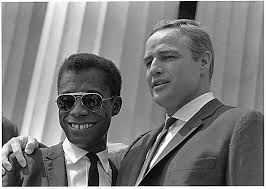 Baldwin &. Marlon Brando
Baldwin &. Marlon BrandoJames Baldwin, of course, wrote amazing essays about race, culture, and the craft of writing. However, in his fiction, such as the emotionally evocative Another Country, he allowed the characters to live their lives. Readers could draw their own conclusions. For many years, Baldwin lived as an ex-pat in Paris. He came home to see his family and friends and write about race, culture, and politics. One of his best-known books was THE AUTOBIOGRAPHY OF MALCOLM X.
More recently, Roxane Gay, feminist and culture critic, has swung back and forth between fiction and essays. Like Stegner, she, too, teaches Creative Writing.
In Sum
Each kind of writing has pros and cons. For me, fiction is all about placing the reader in a situation and letting the reader experience how to stand in that character’s shoes and live the character’s life. It’s a way to try to get at a truth even I may not be able to explain fully.
And journalism? The kind of journalism I did for many years falls into the category of “how-to” writing. That training comes in handy when I’m writing blog posts.
Possibly, I’m a little afraid of the effort it would take to pitch one of the magazines above. I’d need sources. I’d need to fact-check. It would take time.
I actually have an essay on my hard drive. Maybe I should give it a second look.
Marylee MacDonald grew up in Redwood City, California, married her high school sweetheart, and worked as a carpenter in California and Illinois. When she’s not writing, she’s hiking in the red rocks of Sedona, walking on a California beach, or plucking snails from her tomatoes. Her short stories have won the Jeanne Leiby Chapbook Award, the Barry Hannah Prize, the Ron Rash Award, the Matt Clark Prize, and the American Literary Review Fiction Award. Here is a link to her website: https://maryleemacdonald.com/
So, where are YOU in all of this?
Do you have journalistic skills that might come in handy?
Are you an author with a background in journalism?
Let me know via a comment or two.
June 24, 2021
Successful Authors Who Never Finished College
There are those who believe that a university education is almost a prerequisite to becoming a successful author. Nothing could be further from the truth. In fact, you might be surprised to find out how many authors made names for themselves without finishing — or, in some cases, ever attending — college. Here are a few.
Ernest Hemingway
Hemingway was raised in Oak Park, Illinois. He never attended college. After high school, he went to work for The Kansas City Star. During World War I, he left for the Italian front where he became an ambulance driver. In 1918, he was seriously wounded and returned home. His wartime experiences formed the basis for his novel A Farewell to Arms (1929). He went on to write such major best sellers as For Whom the Bell Tolls, The Sun Also Rises, and The Old Man and The Sea. He won the Novel Prize in literature in 1954. Because he had suffered a series in injuries in two recent African plane crashes, he didn’t travel to Stockholm to accept the prize, Instead, he sent a letter to be read. In part, it said: “Writing, at its best, is a lonely life. Organizations for writers palliate the writer’s loneliness but I doubt if they improve his writing. He grows in public stature as he sheds his loneliness and often his work deteriorates. For he does his work alone and if he is a good enough writer he must face eternity, or the lack of it, each day.”
Jack London
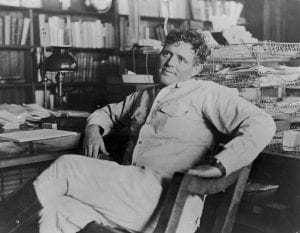 Jack London
Jack LondonJack London is famous for having a variety of very odd jobs (he had a stint as an oyster pirate) throughout his life, but you may not know that he began this practice at the ripe age of ten. By the time he was thirteen he had quit school, still working a handful of jobs, but devouring every book he could find. London eventually ended up at UC Berkeley, but his journey to college was hardly traditional. As a young boy, he found a librarian at the Oakland Public Library who was willing to mentor him, and, with her encouragement, London was essentially self-educated. He worked long hours at a cannery beginning at age 13 and later began to work as a tramp, begging for money. At 18, he spent a month in jail for vagrancy, only after which he returned to complete high school. A pub owner and friend loaned him the money to attend UC Berkeley, but London left a year later when the money ran out and never graduated. Even without a college education, he penned such classics as The Call of the Wild and White Fang. He published his first collection of short stories at age 24.
Harper Lee
 Harper Lee
Harper LeeThe Pulitzer-Prize winning author is a lesson in following your dreams. Lee had been interested in literature from high school, but in college, decided to pursue a career in law. Though her interest in writing only increased as she grew older, in her junior year at the University of Alabama in Tuscaloosa, she was accepted into the school’s law program, set up so students could begin their law studies concurrently with undergraduate work. After only a semester, she dropped out and moved to New York City to become a writer. And we all know how that story ended — not too shabbily. Her most famous work was To Kill a Mockingbird. A sequel, Go Set a Watchman, was published in 2015. It was actually written by Lee before To Kill a Mockingbird, but is set some 20 years later.
H. G. Wells
 H.G. Wells
H.G. WellsThe legendary science fiction author was pulled out of school when his father, a professional cricket player, fractured his thigh. Wells was only 11 years old, but the loss of the grand part of the family’s income forced the children to take apprenticeships — Wells hated his apprenticeship as a draper at the Southsea Drapery Emporium. His experiences there later inspired the novels The Wheels of Chance and Kipps. Every job he had was a nightmare until he was finally able to support himself as a teacher and to continue educating himself in hopes of becoming a writer. Wells went on to become a famous, science fiction novelist known for The War of the Worlds and The Time Machine.
George Bernard Shaw
The famous playwright attended several schools in his youth before dropping out entirely at age 14, finding little value in formal education. “Schools and schoolmasters, as we have them today,” he once wrote, “are not popular as places of education and teachers, but rather prisons and turnkeys in which children are kept to prevent them disturbing and chaperoning their parents.” A voracious learner and reader, he spent hours in the National Gallery of Dublin reading about art, history, and literature and beginning to write on his own. Some of his best-known novels include Pygmalion, Saint Joan, and Mrs. Warren’s Profession.
Jane Austen
Money proved to be a problem for Austen and though she was originally a boarding school student, her education came to a standstill when her parents could no longer afford to keep her in the classroom. And still, she wrote “Pride and Prejudice,” “Mansfield Park” and “Sense and Sensibility.”
 Jane Austin
Jane AustinRay Bradbury
Ray Bradbury is a familiar name to the generations of high school students required to read his classic novel Fahrenheit 451. These students might be irked to discover that Bradbury barely finished high school himself and had no interest in attending college. This is not to imply that he was unmotivated; he started writing stories on butcher paper at age 11 during the Depression. He claimed he didn’t “believe in colleges” and put his faith in libraries instead, to which all children (even poor ones) had access. Bradbury even wrote Fahrenheit 451 in a library, renting a room with a typewriter for an hourly charge. Other books by Bradbury include The Martian Chronicles, Something Wicked This Way Comes, Dandelion Wine, and The Illustrated Man.
Maya Angelou
In response to the tragic circumstances of her childhood, including sexual abuse and racial discrimination, author Maya Angelou remained mute for five years. Even without speaking, these were the years she developed an intense love of language and books. She managed to graduate high school, but three weeks later she gave birth to her son. Unable to attend college and desperate for money, she worked as a pimp and prostitute. Angelou didn’t begin to concentrate on her writing career until she was almost 40, when her friend James Baldwin encouraged her to publish her now-famous autobiography I Know Why the Caged Bird Sings.
Truman Capote
This guy had a tough childhood. Born Truman Streckfus Persons, he was a small, eccentric child often abandoned by his parents. At the young age of 11, he resolved to become a writer and spent the rest of his childhood learning the craft. His mother, however, interrupted his plan when she sent him to military school to toughen him up. It was, predictably, a disaster, but Truman was hired as a copyboy for The New Yorker out of high school. He was 41 when he published his “nonfiction novel” In Cold Blood. Other books by Capote include Breakfast at Tiffany’s, Other Voices, Other Rooms, and The Grass Harp.
Mark Twain
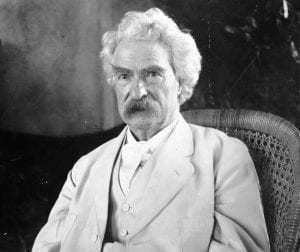 Mark Twain
Mark TwainSamuel Langhorne Clemens was forced to drop out of school at age 12 and to work for food rations after his father died. By age 15, he was contributing articles to his brother’s newspaper. He later moved to New York City to work as a printer and, like Bradbury, educate himself in public libraries. Before becoming a journalist at almost 30, Clemens worked as a steamboat pilot for many years. When he reinvented himself as a writer, his work as a boat pilot would provide his new identity (“mark twain” is steamboat slang for measuring two fathoms). His book, The Adventures of Huckleberry Finn, is often called the Great American Novel. some of his other works include The Adventures of Tom Sawyer, A Connecticut Yankee in King Author’s Court, and The Prince and the Pauper.
Augusten Burroughs
Born into a family of eccentric, highly-educated individuals, Augusten Burroughs was christened Christopher Richter Robison. The future writer dropped out of school in sixth grade, but he obtained his GED at 17. Burroughs then changed his name and enrolled at Holyoke College as a pre-med student, only to drop out before the first semester was over. Burroughs published his controversial first memoir, Running with Scissors, in 2002. Other books include Magical Thinking: True Stories, Possible Side Effects, and A Wolf at the Table.
Charles Dickens
From a young age, Charles Dickens knew he wanted to be famous. One of eight children, Dickens received only sporadic formal education interspersed with factory jobs that offered abysmal working conditions. His father was thrown into debtor’s prison when he was a boy, and his mother and youngest siblings went to live with him there. Dickens’ experiences as an impoverished child would become the inspiration for many of his novels. He eventually became a freelance reporter and is now known as one of the foremost Victorian novelists, having authored such books as A Tale of Two Cities, Oliver Twist, and David Copperfield.
Jack Kerouac
Though he knew he wanted to be a writer, this famous member of the Beat Generation made it to Columbia University on an athletic—not an academic—scholarship. He was a skilled running back for the football team there, but he broke his leg during his freshman year. He made it back for one more season, during which he fought so often with his coach that he was compelled to drop out of school altogether. It was his journey to Columbia, though, that would introduce him to many of the Beats with whom he would soon launch a literary revolution. His best books include, On the Road, The Dharma Bums, Big Sur, and Desolation Angels.
William Faulkner
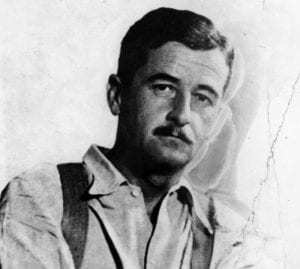 William Faulkner
William FaulknerThis Nobel Prize winner never earned a high school diploma. Not tall enough to enlist in the U.S. Air Force, Faulkner lied his way into the Canadian Royal Air Force for one year before World War I ended. He later enrolled in the University of Mississippi, but he only attended classes for three semesters before dropping out. Faulkner went on to work as a bookseller’s assistant and postmaster before publishing his poetry for the first time at the age of 27. He went on to write such books as Intruder in the Dust, The Sound and the Fury, and Light in August.
June 23, 2021
W. Somerset Maugham and the World’s Ten Greatest Novels
I began reading W. Somerset Maugham in the 1980s when I was covering Asia for the Chicago Tribune. Many of the places I worked and lived were the same places that Somerset Maugham set some of his books and short stories, so I felt it was my duty to get to know this author.
First, I began reading Maugham’s Malaysian Stories, which dealt with life at the end of British colonial rule in what was then called Malaya. I also read The Painted Veil, which is set mostly in Hong Kong.
Then I read The Razor’s Edge, which begins in Chicago where the protagonist, Larry Darrell, settles after being wounded and traumatized by the death of a close friend in World War I. He eventually travels to India seeking enlightenment, happiness, and some meaning to life. Does he find it? You will have to read The Razor’s Edge yourself to find out.
During Maugham’s prolific 90-year-long life he wrote 20 novels, 25 plays, and hundreds of short stories and magazine articles, many of which were made into movies.
 W. Somerset Maugham
W. Somerset MaughamSo, in 1958 when Maugham decided to list what he thought were the 10 best novels of all time, people took note. Not all agreed with him. I’m not sure I do either—after all, there have been many novels written before and after 1958 that surely qualify to be on that list.
Nevertheless, in his book, The World’s Ten Greatest Novels: Great Novels and Their Novelists, Maugham makes his choices and goes on to defend them in a series of brilliant essays.
Maugham’s list
Tom JonesPride and PrejudiceThe Red and the BlackOld Man GoriotDavid CopperfieldWuthering HeightsMadame BovaryMoby-DickWar and PeaceThe Brothers KaramazovNot even the great Maugham, however, insists that his list is definitive and irrevocable. He even lists ten more books that he could just as easily listed as the “greatest.”
I will let Maugham himself explain his choices in these selected passages from his book. Please read on. You won’t be disappointed.
“Let me begin by saying that to talk of the ten best novels in the world is to talk nonsense. There are a hundred, though even of that I am far from sure; if fifty persons, well-read and of adequate culture, were to make lists of the hundred best novels in the world, at least two or three hundred, I believe, would be mentioned more than once; but I think that in these fifty lists, supposing they were made by persons of English speech, the ten novels I have chosen would find a place.
“Now this great diversity of opinion can be somewhat easily explained. There is a variety of reasons that may make a particular novel so much appeal to a person, even of sound judgment, that he is led to ascribe outstanding merit to it. It may be that he had read it at a time of life or in circumstances when he was particularly liable to be moved by it, or it may be that its theme or its setting has a more than ordinary significance for him owing to his own predilections or personal associations.
“But the chief reason for the great diversity of opinion that exists on the respective merits of novels comes, I think, from the fact that a novel is essentially an imperfect form. No novel is perfect. Of the ten I have chosen there is not one with which you cannot in some particular find fault.
“I think Balzac is the greatest novelist the world has ever known, but I think Tolstoy’s War and Peace is the greatest novel. No novel with such a wide sweep, dealing with so momentous a period of history and with such a vast array of characters, was ever written before, no, I surmise, will ever be written again. It has been justly called an epic. I can think of no other work of fiction that could with truth be so described.
“But before I enlarge upon this statement I wish to say something about readers of fiction. The novelist has the right to demand something of them. He has the right to demand that they should possess the small amount of application that is needed to read a book of three or four hundred pages.
“He has the right to demand that they should have sufficient imagination to be able to envisage the scenes in which the author seeks to interest them and to fill out in their own minds the portraits he has drawn. And finally, the novelist has the right to demand from his readers some power of sympathy, for without it they cannot enter into the loves and sorrows, tribulations, dangers, adventures of the persons of a novel. Unless the reader can give something of himself, he cannot get from a novel the best it has to give.
“Now I will specify what, in my opinion, are the qualities that a good novel should have. It should have a widely interesting theme, by which I mean a theme interesting not only to a clique, whether of critics, professors, highbrows, truck drivers or dishwashers, but so broadly human that it is interesting to men and women of all sorts.
“The story should be coherent and persuasive; it should have a beginning, a middle and an end, and the end should be the natural consequence of the beginning. The episodes should have probability and should not only develop the theme but grow out of the story. The creatures of the novelist’s invention should be observed with individuality, and their actions should proceed from their characters; the reader must never be allowed to say: So and so would never behave like that; on the contrary he should be obliged to say: That’s exactly how I should have expected so and so to behave. I think it is all the better if the characters are in themselves interesting.
“And just as behavior should proceed from character, so should speech. A fashionable woman should talk like a fashionable woman.
“The narrative passages should be vivid, to the point and no longer than is necessary to make the motives of the persons concerned and the situations in which they are placed clear and convincing. The writing should be simple enough for anyone of ordinary education to read it with ease, and the manner should fit the matter as a well-cut shoe fits a shapely foot. Finally, a novel should be entertaining.
“But even if the novel has all these qualities, and that is asking a lot, there is, like a flaw in a precious stone, a faultiness in the form that renders perfection impossible to attain.
“When I consider how many obstacles the novelist has to contend with, how many pitfalls to avoid, I am not surprised that even the greatest novels are not perfect, I am only surprised that they are not more imperfect than they are. It is largely on this account that it is impossible to pick out ten and say that they are the best.
“I could make a list of ten more that in their different ways are as good as those I have chosen: Anna Karenina, Crime and Punishment, Cousin Bette, The Charterhouse of Parma, Persuasion, Tristram Shandy, Vanity Fair, Middlemarch, The Ambassadors, Gil Blas. I could give good reasons for choosing those I have just mentioned. My choice is arbitrary.
“It is to induce readers to read them that this series has been designed. The attempt has been made to omit from these ten novels everything, but what tells the story the author has to tell, exposes his relevant ideas and displays with adequacy the characters he has created. Some students of literature, some professors and critics will exclaim that it is a shocking thing to mutilate a masterpiece and that it should be read as the author wrote it.
“But do they actually do this? I suggest that they skip what is not worth reading, and it may be that they have cultivated the art of skipping to their profit, but most people haven’t: it is surely better that they should have their skipping done for them by someone of taste and discrimination. If he has made a good job of it, he should be able to give the reader a novel of which he can read every word with enjoyment.
“They will lose nothing that is valuable, and because nothing is left in these volumes but what is valuable, they will enjoy to the full a very great intellectual pleasure.”
Maugham points out that three of the books on his list were considered “dead failures when first published,” referring to Moby-Dick, The Red and the Black, and Wuthering Heights. Maugham then explains why those three books were considered hopeless failures.
“Such critics as noticed them had little good to say of them. The public ignored them. That is easy to understand. They were highly original. Now, the world, in general, doesn’t know what to make of originality; it is startled out of its comfortable habits of thought, and its first reaction is one of anger. It needs a long time, and the guidance of perceptive interpreters before it can abandon its instinctive recoil and accustom itself to novelty.”
That last passage by Maugham should give all of those budding authors out there some hope that THEIR original work only needs to be seen by “perceptive interpreters” so it can hit the bestseller lists.
June 22, 2021
Judging America’s Past by 21st Century Ideals & Values
We are living at a time when it is fashionable to vilify and “cancel” the founders of our nation because a handful of myopic and narrow-minded chuckleheads have resolved to apply 21st-century values to the 18th and 19th centuries.
I contend, however, that we need to take a step back and scrutinize people like Thomas Jefferson and Andrew Jackson through lenses that are not tainted by today’s intolerant and narcissistic rhetoric. To view Jefferson as anything less than an intellectual titan is ridiculous.
 Thomas Jefferson
Thomas JeffersonAs John Kennedy remarked during a White House dinner for an elite gathering of the brightest minds in the nation, “This is perhaps an assembly of the greatest intelligence ever to gather at one time in the White House, with the exception of when Thomas Jefferson dined alone.”
I wonder what JFK would think about members of his Democrat Party today condemning Jefferson, Washington, and our other founding fathers while condoning the destruction of their likenesses in Washington?
It is manifestly ludicrous for gaggles of ignorant, history-challenged dunderheads—some of whom hold public office or who appear on today’s pervasive cable television shows —to set themselves up as omniscient judges of appropriate comportment when looking back at more than 250 years of American history.
Did Thomas Jefferson own slaves? Yes. Did he have an affair with one of them and father a child with her? Yes.
Does that mean that the extraordinarily brilliant man who wrote the Declaration of Independence; who was our first Secretary of State; who founded the University of Virginia; who served as our third President; and who negotiated the Louisiana Purchase and doubled the size of our country, should have his name and likeness scrubbed from history in an intolerant political purge more appropriate to totalitarian regimes like North Korea, China, or the former Soviet Union?
 Thomas Jefferson
Thomas Jefferson I grant you that by any measure the very existence of slavery in an era when Americans were engaged in a revolution and fighting for freedom from oppression remains a paradox. Most of us understand that. Does that mean that in the 21st century we condone it? Hardly.
Yet Democrat parties in four states have recently removed the names of Thomas Jefferson and Andrew Jackson from their annual fundraising dinners. Democrat parties in five other states are considering a similar step.
Critics of these two men argue that any party that seeks to identify itself with equality and diversity should not be yoked to the slave-holding Jefferson or the Native American-persecuting Jackson.
Those who seek to expel Jefferson and Jackson from the public discourse believe historical figures should be held to the same standards of conduct we employ today. How myopic and imprudent is that? Meanwhile, we have watched scores of statues of George Washington, Abraham Lincoln, U. S. Grant, Jefferson, and Jackson being ripped down by crazed morons–most of whom have little or no idea of who these men were. It’s enough that they were white men.
They regard slavery and the forced relocation of indigenous peoples as so monstrous and odious that anyone responsible for them, regardless of the era in which they lived, should be scorned and condemned and have their statues and other memorials ripped down from public spaces.
Here is a little lesson for today’s faultless arbiters of bygone appositeness: Like it or not, slavery was as much a part of the flawed fabric of early America as the horrendous exploitation of child labor or the frenzied and foolhardy persecution and murder of “witches” in New England.
I suggest, therefore, that there is much to be gained from maintaining a balanced sense of respect and gratitude for the accomplishments of our imperfect ancestors. Despite their shortcomings, men such as Jefferson and Jackson deserve our unremitting respect. Their achievements are impossible for any rational person to ignore.
Jackson, for instance, founded the precursor of today’s Democratic Party. He was a military hero who served two terms as the nation’s seventh president. He dismantled the national bank, overcame an effort by South Carolina to nullify federal law, secured Florida from the Spanish, and paid off the national debt.
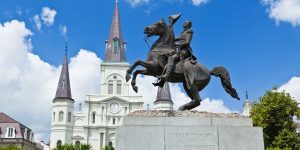 Andrew Jackson
Andrew JacksonYes, Jackson was also a slave owner, and he forced Indian tribes from their lands, thereby precipitating the pitiless “trail of tears.”
But like all of us, Jefferson, Jackson, and our other forefathers were human beings infused with the faults, imperfections, and deficiencies that all human beings possess. It is simple for the holier than thou crowd of today to look back and scorn the behavior and standards of conduct that were commonplace in our imperfect history. They are our nation’s most vociferous Monday-morning quarterbacks, and they are adept at second-guessing every indiscretion, every blunder in our history.
What we are witnessing today is an implicit and undeniable public stoning of men and women from the past who are not here to defend themselves or their actions. They have been dragged into the public square and condemned by sycophants of the PC thought police who have taken it upon themselves to cleanse American history of its imperfections.
Of course, there is danger in a methodology that says we must wipe away the sins of our past. As the philosopher and novelist George Santayana once said: “Those who cannot remember the past are condemned to repeat it.”
I would also remind those pretentious paragons of rectitude and incorruptibility of this rebuke by Jesus Christ:
“Let him who is without sin among you, be the first to cast a stone.”
June 21, 2021
The Marxist Assault on America’s “Woke” Military
Who would have thought it possible? Who would have ever guessed that today’s military would be led by the very socialists and Marxists that I and millions of other veterans battled during a 45-year cold war—not to mention, hot wars such as Korea and Vietnam?
But apparently, that is the case.
Secretary of Defense Lloyd James Austin III has ordered a radical leftist indoctrination of America’s Army, Navy, Air Force, Coast Guard, and the newly-created Space Force.
To make sure this Marxist assault is carried out Austin has hired a radical socialist named Bishop Garrison to perpetrate so-called “diversity” training and purge and eliminate “extremism” in our armed forces.
We can get a hint of what Garrison’s actual mission is by examining his social media posts, where he has called for the curtailing of free speech and written “that all Donald Trump voters support racism.”
Austin and Garrison have never effectively defined just which “extremists” they want to oust from the military, but it appears they mean anybody in the military who voted for Donald Trump in 2016 and 2020. In other words, those servicemen and women who are not Democrats.
One of those servicemen who is not a Democrat is Lt. Col. Matthew Lohmeier a Space Force commander. Lohmeier said last month that the Pentagon sent service members a video declaring that America in general and white people, in particular, were “evil.”
For blowing the whistle on that bit of insidious indoctrination, Lohmeier was relieved of his command. Ultimately, he left the military and wrote a new book entitled: Revolution – Marxism’s Goal of Conquest & the Unmaking of the American Military.
Here is a link to it on Amazon. It is well worth the read:
https://www.amazon.com/s?k=matthew+lohmeier+author+page&i=digital-text&ref=nb_sb_noss
Lohmeier said the Department of Defense’s new “woke” policies include several videos “that were sent out to every base [and] service member” and “we were told to watch [them] in preparation for our “extremism” down days and discussions on race.”
 Lt. Col. Matthew Lohmeier
Lt. Col. Matthew LohmeierThose videos, Lohmeier added, “taught that our country was evil, that it was founded in 1619 and not 1776, and that whites are inherently evil.”
You have to wonder how motivated members of our military are after being told that they are in effect, putting their lives on the line for a systemically racist and evil nation that is still being run by malevolent white slavers.
It certainly isn’t the kind of motivation I received in the mid-1960s when I was a SIGINT operative for the U.S. Army Security Agency with a top-secret & crypto security clearance. For those unfamiliar with SIGINT, it is one of the principal missions of the National Security Agency. SIGINT is intelligence derived from electronic signals and systems used by foreign targets, such as communications systems, radars, cyberspace, and weapons systems.
Our mission was to gather and analyze intelligence we collected from external enemies—including the old Soviet Union and its East European Warsaw Pact allies, as well as Communist China, North Korea, North Vietnam, and Cuba.
Today, however, our men and women in the military are being told by President Biden and military leaders such as Adm. Michael Gilday, chief of naval operations, that our number one enemies are not external ones as in the past.
Instead, our foremost enemies today are climate change and domestic terrorism by white supremacists, otherwise known as Trump supporters, and those who oppose the Democrat leadership in Washington.
 Adm Michael Gilday
Adm Michael GildayRecently, Gilday was grilled by House Republicans in the House Armed Services Committee over accusations from several military whistleblowers of “wokeness” being infused into the psyches of U.S. troops. Specifically, Gilday was pressed on the fallacious contents of Ibram X. Kendi’s highly controversial 2019 book, “How to Be an Antiracist,” and its inclusion on sailors’ list of reading materials.
The book argues that capitalism and racism are inextricably linked, saying, “Capitalism is essentially racist” and “racism is essentially capitalist,” and therefore “capitalism should be destroyed”—not the most convincing or rational syllogism I have ever heard.
But hey, when it comes to race hustlers like Kendi, who’s counting?
“Do you personally consider advocating for the destruction of American capitalism to be extremist?” Rep. Jim Banks (R-Ind.) asked Gilday during the hearing.
“I am not going to sit here and defend cherry-picked quotes from somebody’s book,” he said. “This is a bigger issue than Kendi’s book. What this is really about is trying to paint the United States military, and the United States Navy as weak, as woke.”
Trying? Nobody is trying. The U.S. Military is already far down the yellow brick road to “wokeness.” One only hopes that the socialist Wizards of Oz who are leading today’s military can be exposed and unmasked before it’s too late.
Rep. Doug Lamborn (R-Colo.), citing passages in Kendi’s book, pressed Gilday on why such a fraudulent piece of rubbish should be included in so-called “voluntary” reading lists.
”How does exposing our sailors to the idea that they are either oppressors or oppressed, and that we must actively discriminate in order to make up for past discrimination, improve our Navy’s readiness and lethality?” he asked.
Excellent question. The answer is: it doesn’t!
The military is not and should not be used as a laboratory to test harebrained theories on race or sham experiments linked to gender dysphoria and other social constructs.
For example, the U. S. Army’s mission statement says its purpose is “To deploy, fight and win our nation’s wars by providing ready, prompt and sustained land dominance by Army forces across the full spectrum of conflict as part of the joint force.”
Where does it say in that statement that the United States is an evil nation? That it is systemically racist? That capitalism is evil and should be supplanted by socialism or Marxism?
And where does it say that in order to achieve its mission, it must address “extremism” in its ranks while swilling the poisonous “Kool Aid” of “woke” ideology and Critical Race Theory?
The answer? Nowhere.
Thank God, two Republican lawmakers, Sen. Tom Cotton of Arkansas and Texas Rep. Dan Crenshaw, a decorated veteran, have begun a whistleblower campaign so that active-duty military members can report that garbage like the 1619 Project and Critical Race Theory is being used as part of the military’s diversity training programs.
The whistleblower campaign will protect men such as Lt. Col. Lohmeier from being summarily dismissed for speaking out about the disgusting CRT indoctrination taking place in our military.
While Gilday may argue that our military is not weak or woke, the facts seem to contradict his argument.
Last month, Sen. Ted Cruz (R-Texas) mocked a US Army recruitment ad that featured a female soldier who was raised by a lesbian couple in San Francisco and was inspired to serve a country that defends gay rights. Well, whoop-de-doo. As long as she defends gay rights and whatever other socially woke flavors of the day that are making the rounds in our march to incessant wokeness, we can be sure we will be well protected by our military.
 Please don’t cry. I didn’t mean to hurt your feelings, soldier!
Please don’t cry. I didn’t mean to hurt your feelings, soldier!He compared that ad to a Russian military ad that showed a group of tough-as-nails male soldiers doing pushups, shaving their heads, engaged in hand-to-hand combat, jumping from airplanes, and firing rifles.
“Holy crap,” Cruz quipped. “Perhaps a “woke,” emasculated military is not the best idea.”
You think?
June 20, 2021
Word Play Masters Invitational: It’s a Hoot!
Since 2010 Word Play Masters has run a contest circulated on the Web in which readers are asked to take any word from the dictionary, alter it by adding, subtracting, or changing one letter, and then supplying a new definition.
As a writer, I have always been fascinated by words, how they are formed, and their definitions. I know, I know, an interest like that borders on abject nerdiness. But I can’t help it. For more than 30 years I have made my living by stringing words together, and these articulations grabbed my attention and refused to let go.
Take a look for yourself. And if you can think of any words to contribute, the wordsmiths at WordPlay Masters have issued the following memorandum:
“Please feel free to send us your words and definitions on the Submit Words page. We’ll post anything that’s clean (meaning your very bright seven-year-old can read it without you wincing). Once a year we’ll have a contest to determine the winners (with no scientific validity whatsoever). If you want to enter the contest, there’s nothing to do but send in a word for consideration. A panel of “experts,” made up of some clever previous winners, determines the final winners each year.”
The Brainiacs at WordPlay Masters point out that for years an email has been circulating about something called the “Washington Post’s Mensa Invitational” which includes a very clever list of “new” words. However, they have issued the following disclaimer:
“THIS SITE IS NOT ASSOCIATED WITH THE WASHINGTON POST!”
Here are a few winners from the past few years.
Cashtration (n.): The act of buying (or building) a house, which renders the subject financially impotent for an indefinite period.Ignoranus: A person who’s both stupid and an asshole.Intaxication: Euphoria at getting a tax refund, which lasts until you realize that it was your money to start with.Reintarnation: Coming back to life as a hillbilly.Bozone (n.): The substance surrounding stupid people that stops bright ideas from penetrating. The bozone layer, unfortunately, shows little sign of breaking down in the near future.Foreploy: Any misrepresentation about yourself for the purpose of getting laid.Giraffiti: Vandalism spray-painted very, very highSarchasm: The gulf between the author of sarcastic wit and the person who doesn’t get it.Inoculatte: To take coffee intravenously when you are running late.Hipatitis: Terminal coolness.Osteopornosis: A degenerate disease. (This one got extra credit.)Karmageddon: It’s when everybody is sending off all these really bad vibes, and then the Earth explodes, and it’s a serious bummer.Decafalon (n.): The grueling event of getting through the day consuming only things that are good for youGlibido: All talk and no action.Dopeler effect: The tendency of stupid ideas to seem smarter when they come at you rapidly.Beelzebug (n.): Satan in the form of a mosquito, that gets into your bedroom at three in the morning and cannot be cast out.Caterpallor (n.): The color you turn after finding half a worm in the fruit you’re eating.Here is another list of winning submissions in which readers are asked to supply alternate meanings for common words.
And the winners are:
Coffee, n. The person upon whom one coughs.Flabbergasted, adj. Appalled by discovering how much weight one has gained.Abdicate, v. To give up all hope of ever having a flat stomach.Esplanade, v. To attempt an explanation while drunk.Willy-Nilly, adj. Impotent.Negligent, adj. Absentmindedly answering the door when wearing only a nightgown.Lymph, v. To walk with a lisp.Gargoyle, n. Olive-flavored mouthwash.Flatulence, n. Emergency vehicle that picks up someone who has been run over by a steamroller.Balderdash, n. A rapidly receding hairline.Testicle, n. A humorous question on an exam.Rectitude, n. The formal, dignified bearing adopted by proctologists.Pokemon, n. A Rastafarian proctologist.Oyster, n. A person who sprinkles his conversation with Yiddishisms.Frisbeetarianism, n. The belief that, after death, the soul flies up onto the roof and gets stuck there.Circumvent, n. An opening in the front of boxer shorts worn by Jewish men.Let me know what you think and feel free to add your very own new word!
June 18, 2021
Flashman–Victorian England’s foremost rotter would have made a great foreign correspondent
At the request of a faithful follower, today I am re-posting a column that appeared a while back in The Economist, one of the U.K.’s most prestigious magazines. Written by an unnamed foreign correspondent, it takes a sardonic and self-effacing view of foreign correspondents by suggesting that Harry Flashman, Victorian England’s foremost rotter, would have made a great journalist. As with all satire, there may be more truth here than us hacks care to admit. Enjoy.
From The Economist, Dec 24, 2016
REBELS had captured the dam that supplied electricity to Kinshasa and turned off the lights in the Congolese capital. Now they were marching on the city. Panic reigned. Pro-government thugs were going around lynching suspected rebel spies. Some they hacked to death. One they tossed off a bridge and shot as he bobbed in the river.
A city under siege, full of power-drunk kids with Kalashnikovs, is no place to be. Your correspondent was there and feeling frightened. Which reminded him of one of the great cowards of English literature. He asked himself: in this situation, what would Flashman do?
For readers who have not yet met him, Flashman was the villain of “Tom Brown’s Schooldays,” a pious novel about life at a British boarding school published in 1857. The author, Thomas Hughes, portrayed him as a bully who roasted small boys over open fires but ran away sniveling from anyone bigger than him.
A century later, a Scottish journalist called George MacDonald Fraser wondered what happened to Flashman after he was expelled from school. He answered his own question with a series of wickedly comical historical novels. In Fraser’s telling, the adult Flashman was every bit as horrible as the schoolboy, but through sheer luck and sleazy charm became one of the most decorated heroes of the Victorian era: Brigadier-General Sir Harry Flashman, VC, KCB, Legion of Honour, San Serafino Order of Purity and Truth (4th class), etc.
His career took off when, having joined the army because the uniform attracted women, Flashman found himself besieged in a fort in Afghanistan. He feigned sickness to avoid fighting. When all the other defenders were killed or wounded, he grabbed the British flag and, pleading for mercy, offered it to the Afghan warriors surging over the walls.
Just then a big explosion marked the arrival of a British relief force. Flashman was found unconscious, draped in the flag and surrounded by dead Afghans. Everyone assumed he was defending the colours, not surrendering them, and he won the first of many medals.
Morally, it would be hard to find a worse role model. Over the course of 12 books, Flashman bullied underlings, betrayed friends, cheated on his wife Elspeth and stabbed in the back anyone who blocked his escape route. Yet there is much that this fictional Victorian rotter can teach modern reporters. Though he was leery of journalists (“tricky villains, especially if they work for the Times”), he would have made an outstanding one.
Flashman’s first instinct was for self-preservation. This is a useful (and underrated) trait for journalists. Had he been stuck in Kinshasa in August 1998, Flashman would have headed for the best-guarded hotel and hung out in the bar by the swimming pool. That is what your correspondent did, and it proved an excellent policy.
The beer was refreshing, the brochettes de boeuf delicious and the conversation highly informative. All the power brokers, spies, moneymen, and diplomats passed through. By listening to them, your correspondent gleaned a fuller picture of what was going on than if he had ventured out to the front line, which would have involved a lot of hiding in ditches and trying unsuccessfully to figure out who was shooting at whom.
Hang back from the shooting, and you often get a better view. During the Crimean war of 1853-6 Flashman used all his wiles to hang back, describing the campaign with colour and precision from safe hilltops. Unfortunately for him, he was then caught up in the most foolhardy maneuver of the entire war.
His horse bolted towards the Russian cannons, causing Flashman unwillingly to race out ahead of the Charge of the Light Brigade. British newspapers interpreted this as “Flash Harry” up to his usual heroics.
Your correspondent has never galloped into a Valley of Death, but he has occasionally blundered into sticky situations. Once during the civil war in the Ivory Coast, he ran into a rebel roadblock—a heap of branches and a broken fridge with a cow’s skull on top. The youngsters manning it were stripped to the waist, armed with rocket-propelled grenade launchers, and drunk at 10.30 in the morning.
Flashman, faced with superior firepower in unsteady hands, would have smiled, made himself pleasant to his captors, and tried to buy time. That is what your correspondent did, swigging Kou Tou Kou (a fiery spirit distilled from palm wine) out of a shared plastic jerry can. Eventually, he was rescued by a French army officer, who persuaded the rebels that journalists are not spies.
Modern reporters use all sorts of methods to stay safe. They hire fixers. They go on “hostile environments” courses. They send back a barrage of WhatsApp messages describing where they are. None of this is as effective as Flashman’s nose for danger and intense desire to avoid it. Nor can any course teach his genius for getting out of it. Which is probably just as well: throwing one’s lover off the back of a sled to lighten its load and escape pursuing Cossacks is hardly cricket.
Flashman also immersed himself in the local culture. He picked up foreign languages absurdly quickly. By the end of a long career, he was fluent in nine and could rub along in another dozen. He never learned much in a classroom—Latin and Greek bored him senseless. Rather, he learned by listening to native speakers and catching the rhythm and feel of their dialect.
Usually, he did this in bed. Tall, handsome, and effusively whiskered, Flashman was successful with women from a wide variety of cultures. Not all ended up hating him. On one occasion, to pass the time in a dungeon in Gwalior in India, he tried to count his conquests and arrived at a figure of 478. That was in 1857 when he was only 35; he lived to 93.
Speaking multiple languages often saved his skin. Locked up during the Second Opium War, he was the only British prisoner who understood that their Chinese jailer planned to execute one of them. Asked to translate, he lied that the jailer planned to send one of them with a message to the British and French forces besieging the town. Eager for freedom, a soldier who was blackmailing Flashman pushed to the front—and was conveniently beheaded.
In some ways being a scoundrel made Flashman a better reporter
A good foreign correspondent will network with powerful people, the better to understand the motives behind important policies. Flashman rubbed shoulders with Wellington, Lincoln, and Bismarck (though Bismarck loathed him and tried to have him killed). His accounts add fistfuls of spice to the historical record.
Indeed, the Flashman Papers can be useful background reading during reporting trips. It was thanks to Flashman that your correspondent understood when visiting the Summer Palace in Beijing, the scale, and scandal of its destruction by British troops in 1860. When covering a flood in Madagascar, he could find no better short history of the island than Flashman’s Malagasy adventures. And Flashman would have chuckled to learn that lotharios are now known there as bananes flambés, after a popular dessert.
The Flashman Papers purport to be written by Flashman himself—the secret, honest memoir of a garlanded rogue, discovered in a Leicestershire saleroom in 1965 and “edited” by Fraser, with helpful historical footnotes. The books are so well researched that, to naïve readers, they can appear genuine. When “Flashman” was first published in America, about a third of the 40-odd reviewers took it at face value. One called it “the most important discovery since the Boswell papers”. Fraser laughed till it hurt.
Strenuous research (Fraser was a keen amateur historian) and dollops of first-hand observation (he was an energetic traveler, too) are the raw materials of great journalism. To this Fraser added a crackling prose style and a gift for storytelling. As an observer, Flashman was often caustic but never blinded by the pieties of his age. He believed neither in the civilizing mission of the British Empire nor in the myth of the noble savage. So whether he was observing Englishmen, Sikhs or Zulus, he recognized fools, heroes, and charlatans for what they were.
In some ways being a scoundrel made Flashman a better reporter. Many modern correspondents tend to preach. This quickly becomes tedious. Journalists who profess outrage at every minor politician’s off-colour remark soon run out of words to describe real outrages.
Flashman did not have this problem. He was callous and made no effort to pretend otherwise. This made his prose more convincing, for he let the facts speak for themselves. On the rare occasions when he was moved to make a moral judgment, the effect is electrifying. One such instance occurred when he was press-ganged onto a slave ship, where he saw Africans branded, chained, and crammed below decks.
“The crying and moaning and whimpering blended into a miserable anthem that I’ll never forget, with the clanking of the chains and the rustle of hundreds of incessantly stirring bodies, and the horrible smell of musk and foulness and burned flesh. My stomach doesn’t turn easily, but I was sickened…when you’ve looked into the hold of a new-laden slaver for the first time, you know what hell is like.”
He admitted that, if someone had approached him in his London club and offered him £20,000 to authorize a shipment of slaves, he would have taken the money. Out of sight, out of mind: this was also the attitude of many of his respectable contemporaries to buying slave-made sugar or cotton. Fraser did not need to remind readers that Flashman—a sociopath—was in this respect little worse than millions of 19th-century British tea-drinkers.
Laptop, flak jacket, condoms
Being a foreign correspondent is the most enjoyable job there is. The men and women who are lucky enough to do it today travel the world, meet new people, sample exotic new dishes and grapple with new ideas. Even when it is uncomfortable, it can be exciting. To make the most of a posting, journalists must be open to new experiences and skilled at seeking them out. It helps to have a fat expense account.
Flashman sometimes had no money at all but made up for it with resourcefulness. When fleeing from angry gun-toting slave-owners in New Orleans, he crept into the French Quarter and inveigled his way into a luxurious brothel by seducing the madam, who fell in love with him and asked her butler to ply him with fine wine and Cajun delicacies.
Your correspondent had a more austere time in the Big Easy in 2005, after Hurricane Katrina. At one point he too had to beat a tactical retreat from an angry gun-toting homeowner. Alas, with all the hotels in town closed by floodwater, the only place to sleep was in a cramped, sweaty caravan with half a dozen other hacks, some of whom snored.
Whenever your correspondent visits a place where the ultimate cad once trod—Harper’s Ferry, Isandlwana, even west London—the relevant passage from the Flashman Papers comes easily to mind. Such memorability sets a standard that journalists rarely match. Most of his own work, he knows, is written in haste and soon forgotten.
As he writes this, he is about to head for Afghanistan, where Flashman earned his first laurels. In his luggage will be the first “Flashman” on his iPad. And at the first whiff of danger, he will bolt.
This article appeared in the Christmas Specials section of the print edition of The Economist under the headline “The cad as correspondent.”
June 17, 2021
Are We Nazi Germany?
For most of my life, whenever Nazi Germany was brought up, somebody always said something like this:
“It’s unbelievable that Adolph Hitler was able to manipulate and control the entire German population. It just seems impossible.”
Yet that’s exactly what he did. Yes, there were some dissenters and political foes, but they were quickly subdued and quashed as the boundless power of the Nazi regime quickly shut down all dissent with the use of Brown Shirts, the “Schutzstaffel” or SS, and the dreaded Gestapo or Geheime Staatspolizei.
Perhaps a bit of context is in order here. I spent three years in Germany with the Army Security Agency involved in SIGINT (intelligence derived from electronic signals and systems used by foreign targets), I am fluent in the German language, and my wife is German. I have studied German history and I keep up with current events in the country.
Like a lot of Americans, I always assumed America was safe from the kind of tyranny the German people experienced under the heavy hand of the Third Reich.
 German schoolchildren giving the Nazi salute
German schoolchildren giving the Nazi saluteThere is no way our federal, state, and local governments could restrain and control the American people the way Hitler and his Nazis dominated the German population, I thought.
Yet, for the past 18 months, that’s exactly what has happened in America.
A nation that always prided itself on its independence and individuality was suddenly locked down. Travel was restricted, schools and businesses were shuttered, we were commanded to wear face masks, voting laws were altered, isolation and quarantines were mandated, freedom of speech was restricted by social and mainstream media if what was said or written was judged by Big Tech oligarchs to be “misleading information.”
And it didn’t stop there. A public health emergency was declared, borders were closed, and large gatherings were forbidden—including church attendance, funerals, and weddings.
In short, civil liberties that Americans had always taken for granted were suspended by those in power, just as the rights of the German people, including a free press guaranteed by Germany’s Weimer Republic (1918 to 1933), were rescinded by the Nazis. The German press had little or no response and quickly complied with their new masters.
Joseph Goebbels, Nazi Germany’s Minister of Propaganda, had no use for a free press and once said: “Think of the press as a great keyboard on which the government can play.”
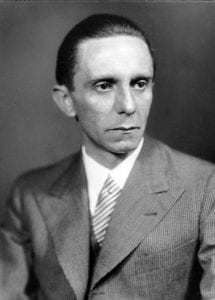 Joseph Goebbels, Reichminister for Propaganda
Joseph Goebbels, Reichminister for PropagandaJust alter that quote a little and you have a passage more relevant to American social media today: “Think of social and mainstream media as a great keyboard on which Big Tech oligarchs can play.”
Big Tech in the United States is following another Goebbels maxim:
“Not every item of news should be published. Rather, those who control news policies should endeavor to make every item of news serve a certain purpose.”
We know what that “certain purpose” is.
Today, during Biden’s socialist regime, the goal is to promote socialist policies and protect our feckless president from all criticism—the same objective that Goebbels was tasked with during Adolph Hitler’s reign.
No doubt Goebbels would be proud of America’s Big Tech oligarchs. They are performing the same tasks in 2021 America that Goebbels performed during the 12 years of the Third Reich.
Instead of opposing restrictions on our First Amendment rights, which guarantees five basic freedoms (religion, speech, the press, the right to assemble, and the right to petition the government for a redress of grievances) millions of panicked Americans were quick to acknowledge and tolerate these new restrictions of their civil rights while the media declined to investigate the pandemic, its source, its causes, and its severe impact—especially on young children and the elderly.
Instead, our media spent most of the pandemic refusing to look at China as the cause and source of the Covid-19 virus, choosing instead to pillory President Trump for daring to even suggest that China might be culpable. Today, we are learning (much to the chagrin of the media) that Trump was probably right. The virus came from a Wuhan, China lab and not from a flying rodent.
Indoctrination of School Children
As was the case in Nazi Germany, American K-12 school children and students in universities are being indoctrinated with political dogma from socialist organizations like Black Lives Matter. Curricula are filled with the bogus and deceptive Critical Race Theory and the debunked and fallacious 1619 Project. Those who don’t adhere to the dogma are ostracized, canceled, and even fired from teaching positions.
Of course, in 1930s socialist Germany (Yes, folks, the Nazis were socialists. Nazi stands for “Nationalsozialist” or National Socialism), the Nazis went even further. They sent educators, religious leaders, and political opponents to concentration camps like Dachau.
They encouraged supporters to take to the streets to harass and assault Nazi opposition. It was a winning tactic because few Germans dared oppose armed mobs of Brown Shirts who were never arrested or prosecuted for their assaults on people or property.
Sound familiar? Remember Black Lives Matter and ANTIFA in places like Minneapolis, Seattle, Portland, Chicago, and New York City? They are still burning in looting.
Once again, the activities of those organizations are right out of the Nazi playbook.
“Whoever can conquer the street will one day conquer the state, for every form of power politics and any dictatorship-run state has its roots in the street,” Goebbels once said. “Total dominance is the goal.”
In Germany, it was one-party dominance that put the state at the summit of the political and social lives of the German people. History was rewritten, free speech was suppressed, books were banned, people’s lives were monitored, and religion was ridiculed and stifled in favor of the secular nation.
Today, Democrats in Congress actually talk about banning or outlawing the Republican Party—or at least those Republicans and independents who supported and voted for Donald Trump or who refused to follow government decrees and diktats during the pandemic.
Others are quick to support the lockdowns and suspension of civil rights.
“This pandemic is a ‘black swan event,’ one without modern precedent, opined Harvard Law Professor Charles Fried. “Most people are worried about restrictions on meetings — that’s freedom of association. And about being made to stay in one place, which I suppose is a restriction on liberty. But none of these liberties is absolute; they can all be abrogated for compelling grounds. And in this case, the compelling ground is the public health emergency.”
I’m not buying it.
What we have experienced in the United States since January 2020 has been a gross overreach of state and national power—the domination of individual freedoms never before seen in this country.
Where were the resisters, the “anti-Nazis?”
Persecution of Political Opponents: Nazi Germany & the USA
In Nazi Germany, Jews were portrayed as a public health menace, vermin to be exterminated. The monthly magazine Neues Volk published by Germany’s “Office of Racial Policy,” argued that all Jews suffered from “hereditary illness” and each Jew cost German taxpayers and the community 60,000 Reich Marks over the course of a single lifetime. Lists of Jews were compiled in every German town and city and today we know millions were rounded up and murdered.
There are troubling parallels to that kind of thinking in America today as examples of anti-Semitism escalate day after day, mostly from a left that supports Palestinian causes and terrorist tactics, but maintains a visceral hatred toward Israel.
Democrat members of Congress have taken that kind of political and social “cleansing” even further, insisting Republicans, conservatives, and anybody who supported or supports Donald Trump should be sent to “re-education camps” and “deprogrammed.”
Democrat Representative Alexandria Ocasio-Cortez and other leftist Democrats insist that “lists” should be made of all Trump supporters so they can be “ostracized and otherwise punished.” Keeping “enemies” lists was a favorite tactic of the Gestapo. Thank you, AOC for reintroducing this insidious tool to Congress.
But, Democrats didn’t stop there. Michael Beller, principal counsel for the tax-supported Public Broadcasting Service (PBS), said in a video that the children of supporters of President Donald Trump should be seized and placed in “re-education camps.”
“We should go for all the Republican voters, and Homeland Security will take their children away, and we’ll put [Trump supporters’ children] into re-education camps,” Beller said in the video. See for yourself. Here’s the link to that video.
Beller must have been listening to Adolph Hitler, who, in 1933 said this about children:
“If the older generation cannot get accustomed to us, we shall take their children away from them and rear them as needful to the Fatherland.”
So, is THIS the state of our nation today?
We are a country divided politically and socially into warring tribes: Democrats vs. Republicans, liberals vs. conservatives, minorities (brown, black, and yellow people) vs. whites, victims vs. oppressors, communities of color vs. police, the “haves” vs. the “have nots,” socialists vs. capitalists.
All that’s left is for Americans on opposing sides to arm themselves and commence slaughtering one another because of conflicting political and social opinions or skin color. Wouldn’t China, Russia, and America’s other enemies just love that?
In 1920s Germany it was Hitler’s “Brown Shirts” attacking the feeble Weimar Republic—Germany’s first experiment with democracy. It was a growing Communist Party vs. a nascent Nazi Party. But after 1932 when Hitler and the Nazis gained power, Jews, Gypsies, Slavs, and political opponents were rounded up and sent to concentration camps.
Is this the “Endlösung” (final solution) that some socialists, radical leftists, and Democrats are proposing for America’s Republican Party, conservatives, and Trump supporters?
Are we headed for a one-party socialist political system in which we allow our rights to be suspended indefinitely, the way we did for the past 18 months?
After millions of courageous Americans went to war in World War II and more than 500,000 made the ultimate sacrifice fighting fascism, are we going to roll over and accept domination by a few elite socialists and leftist Democrats who are convinced they should remain in power ad infinitum?
Are the American people going to submit to the Big Tech oligarchs, our corrupt and compliant media, and the socialist elites in Washington and allow their rights to be trampled and obliterated?
In short, are we Nazi Germany?


